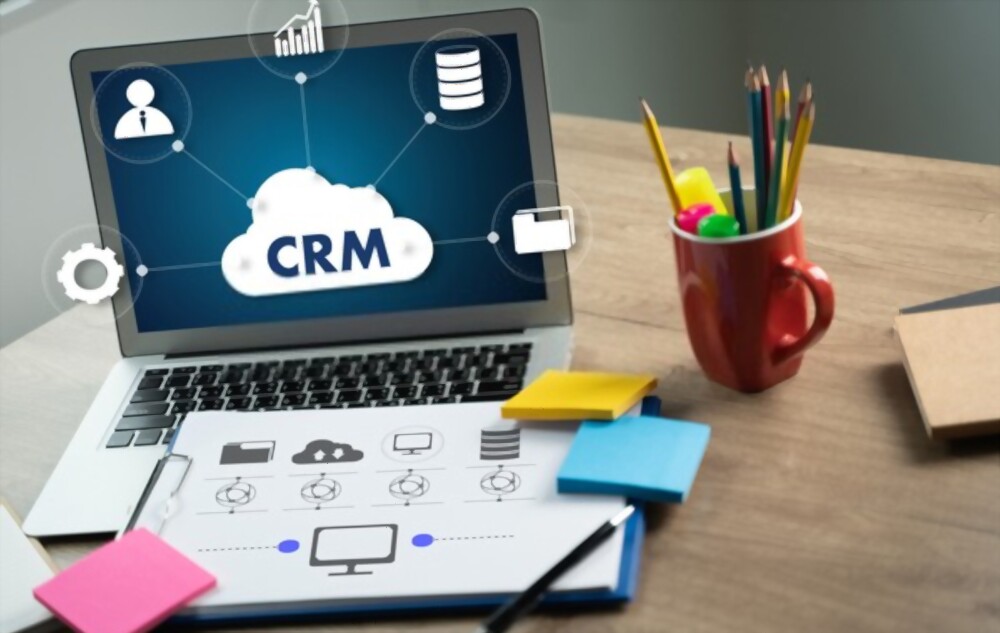What Does CRM mean?
Thank you for visiting our article on CRM, or customer relationship management, article. Having solid, constructive relationships with customers is crucial in today’s fiercely competitive business environment. Businesses use CRM as a strategy and set of tools to manage and enhance those relationships. We’ll examine CRM in more detail in this article, including what it is, how it functions, and why it’s crucial for companies of all sizes and in all sectors. We’ll also discuss various CRM system types and provide advice on how to use them in your own company. So, whether you’re a seasoned business owner or are just getting started, you’ll find useful information here that can aid in creating and maintaining a strong rapport with your clients.

The Value of CRM for Businesses
CRM is a potent tool for companies of all sizes and across all sectors because it enhances customer relationships and boosts revenue. Businesses can track and analyze customer interactions and purchasing trends by utilizing a CRM system, which enables them to better target their sales and marketing initiatives to their target market’s needs. As a result, there may be a rise in customer loyalty, repeat business, and sales.
CRM can aid businesses in better understanding their customers, which is one of its most important advantages. Businesses can store and organize customer information using a CRM system, making it simple to access and analyze. Making personalized sales presentations, targeted marketing campaigns, and customer service interactions are all possible with the help of this data.
Various industries that have used CRM include:
Retail: CRM can assist businesses in tracking the preferences and patterns of their customers’ purchases, which can then be used to develop specialized discounts and promotions.
Healthcare: CRM can assist healthcare providers in keeping track of patient data and interactions, which can be used to enhance patient care and simplify procedures.
Finance: CRM enables financial institutions to monitor and evaluate customer interactions, which can be used to spot potential fraud and enhance customer support.
In general, CRM is a useful tool for companies looking to enhance customer relations and boost sales. Because CRM can store and analyze customer information, it can aid businesses in better understanding their target market and enhancing the effectiveness of their sales and marketing efforts.
Various CRM system types
There are various CRM system varieties, each with unique benefits and drawbacks. On-premise, cloud-based, and mobile CRM systems are the three primary categories.
On-Premise CRM Systems: Compared to other types of CRM systems, on-premise CRM systems are typically more expensive and require more maintenance. They are installed on a company’s own servers. They do, however, provide more flexibility for customization and data security.
CRM systems that operate in the cloud can be accessed online and are hosted on distant servers. Generally speaking, they are less expensive and need less upkeep than on-premise CRM systems. They can also be accessed from anywhere and frequently update automatically.
Mobile CRM Systems: Mobile CRM systems are created for use with portable electronics like tablets and smartphones. They enable real-time access to customer information, making them perfect for businesses with mobile staff.
The best CRM system for a business will depend on its particular requirements and available budget. Each type of CRM system has its own set of benefits and drawbacks. CRM systems that are installed on-site give you more control over data security and customization, but they are typically more expensive and require more upkeep. Although cloud-based CRM systems are more affordable and require less upkeep, you might have less control over how secure and customizable your data is. While mobile CRM systems may not have all the features and functionalities of on-premise or cloud-based systems, they are perfect for businesses with mobile workers.
It’s crucial for businesses to consider their own needs and budget when selecting a CRM system. The best choice will depend on the particular needs of the business. Each type has a unique set of benefits and drawbacks.
How to Use CRM in Your Company
A CRM system’s implementation can be a challenging task, but with the right procedures, it can be completed successfully. Here are some pointers for integrating CRM into your company:
Set your objectives: It’s critical to define your system’s goals in detail before putting a CRM system into place. What do you want CRM to accomplish? This might entail boosting sales, enhancing customer support, or streamlining processes.
Select the appropriate system: There are numerous CRM options available, so it’s critical to pick the one that best suits your company. When selecting a system, take into account your needs, your budget, and the size of your company.
After deciding on a CRM system, it is crucial to train your team on how to use it. Make sure they are aware of the capabilities of the system as well as how to enter and access customer information.
Implement the system in phases: This may be more effective than attempting to implement the system all at once. Start with the system’s most crucial features and gradually add more functionality as you grow accustomed to it.
Once the system is operational, it is critical to continuously assess its performance and implement any necessary improvements. This might entail enhancing the system with new features or making adjustments to better suit your company’s requirements.
Advice for selecting the best CRM system for your company:
- Think about your spending limit and the size of your company.
- Look for a system with the attributes and capabilities you require.
- Examine the system’s scalability to see if it can expand with your company.
- Examine the system’s compatibility with other programs you use.
- Choose a system with excellent customer service.
- Examine whether the system can be modified to meet the unique requirements of your business.
- Businesses can successfully implement a CRM system that will help them strengthen customer relationships and boost sales by adhering to these guidelines.
Conclusion
In conclusion, CRM can benefit companies by:
- improve interactions with customers
- greater sales
- Improved customer understanding
- Create more individualized and successful sales and marketing campaigns.
Any company, regardless of its size or industry, should consider investing in a CRM system to strengthen client relationships and increase revenue. CRM can be a useful tool for businesses looking to expand and thrive in today’s cutthroat business environment with the right system and implementation strategy.



